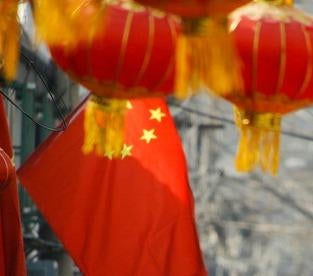Foreign Direct Investment
National People’s Congress Passes Foreign Investment Law
中国全国人民代表大会通过外商投资法
On March 15, 2019, the National People’s Congress of China passed the Foreign Investment Law of the People’s Republic of China (the “Foreign Investment Law”), which will come into effect Jan. 1, 2020, and will replace the existing Sino-Foreign Equity Joint Venture Law, Sino-Foreign Cooperative Joint Venture Law and Foreign-Owned Enterprise Law to become the principal law regulating foreign investment activities in China. The newly enacted Foreign Investment Law aims to promote protection of foreign investors’ legitimate rights and address various issues in the existing foreign investment administration, including the structure of corporate governance, national treatment, negative list, intellectual property protection, and prohibition of mandatory technology transfer.
Highlights of the Foreign Investment Law:
-
Four types of activities by foreign investors are categorized as foreign investments, to which the Foreign Investment Law shall be applicable: (a) setting up an enterprise in China, (b) acquisition of shares, equity interest, property shares, or other similar equitable interest in China, (c) investment in a new construction project in China, and (d) other types of investment specified by law, administrative regulations, or the State Council.
-
The negative list, the foreign investment information reporting system, and the foreign investment security review have been formally incorporated into the Foreign Investment Law, jointly establishing a new regulatory framework for the Chinese government to supervise and administer foreign investment admission and related activities.
-
The Foreign Investment Law repeals the three existing pieces of laws on foreign investments, and explicitly stipulates that the Company Law and the Partnership Law shall apply to foreign invested enterprises with respect to the form of organization, the organization structure, and principles of activities, eliminating the long-existing difference in the corporate governance structure between foreign invested enterprises and domestic companies in China. A five-year grace period is provided for the existing foreign invested enterprises to transform their corporate governance structure.
-
The principle of equal treatment is stipulated in several parts of the Foreign Investment Law, including that (a) national supporting policies and national mandatory standards shall be equally applicable to foreign invested enterprises; (b) products and services provided by foreign invested enterprises shall be equally treated in government procurement activities; and (c) unless otherwise stipulated by laws or administrative regulations, the procedures and conditions for foreign invested enterprises’ application for governmental permits shall be the same as those applied to the domestic entities.
-
The Foreign Investment Law also addresses the frequently raised concerns of intellectual property right protection. It emphasizes that the state protects the intellectual property rights of the foreign investors and the foreign invested enterprises, and prohibits imposition of mandatory technology transfer by administrative authorities.
Company Law
Supreme People’s Court Issues Judicial Interpretation for Company Law (No. Five)
最高人民法院出台公司法司法解释(五)
On April 28, 2019, the Supreme People’s Court issued Provisions Regarding Several Issues in Application of the Company Law of the People’s Republic of China (No. Five), which clarifies the law with respect to waiver of liability for affiliated transactions, avoidance and rescission of affiliated transactions, dismissal of directors, time limits for profit distribution, and company deadlock mechanism.
In particular, the People’s Supreme Court sought to afford more protection to shareholders in the affiliated transaction by (a) stipulating that merely performing procedural obligations (including making disclosures, seeking approval by shareholders’ meetings or other required procedures) are not per se sufficient to discharge the liability owed by the controlling shareholder/controlling person/director/supervisor/ management to the company in affiliated transactions, implying that substantive fairness should also be considered in deciding such matters; and (b) allowing derivative actions brought by shareholders satisfying certain conditions under the Company Law where the company refuses to avoid or rescind a contract with affiliated parties.




 i
i


